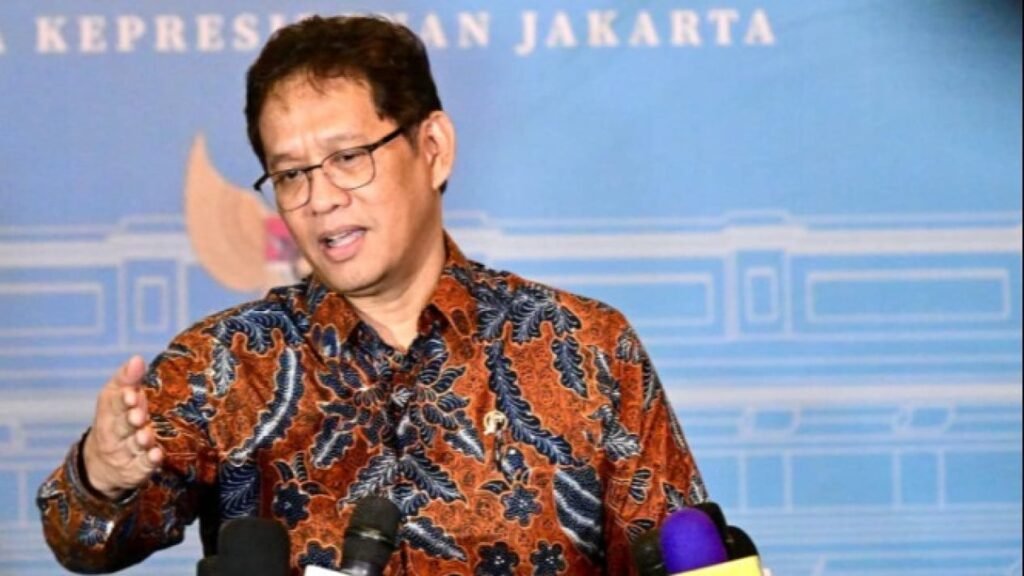(Jakarta) — Indonesia was jolted by a major announcement earlier this week: President Prabowo Subianto appointed Purbaya Yudhi Sadewa as Finance Minister, replacing Sri Mulyani Indrawati. The decision immediately triggered waves of reactions from markets, business leaders, and the wider public. Sri Mulyani, long regarded as a global icon of fiscal reform and trust, left a chair that few could easily fill. Yet precisely for that reason, Purbaya’s arrival is being read as the beginning of a new and challenging chapter.
For years, Sri Mulyani had been the emblem of Indonesia’s fiscal discipline, from the presidency of Susilo Bambang Yudhoyono through Jokowi’s era. Her reputation was woven into every policy that calmed global volatility. But behind that long legacy steps in a very different figure: Purbaya, an economist long embedded in policymaking circles, though rarely under such bright lights of public scrutiny.
He is far from a newcomer. Purbaya’s name has long circulated in the inner rings of economic decision-making. Under SBY, he was trusted as part of the president’s economic think tank. Under Jokowi, his role became more prominent, culminating in his chairmanship of the Indonesia Deposit Insurance Corporation (LPS)—a strategic post that tested his ability to steer through financial pressures. There, he built a reputation as a technocrat not only skilled in analysis but also firm in decision-making under stress.
No sooner was he sworn in than Purbaya moved quickly. Within days, he announced a series of priorities that pointed clearly in one direction: energizing the real sector. For too long, fiscal policy narratives have dazzled in macroeconomic terms, yet felt distant from the pulse of small and medium enterprises. Purbaya signaled a different approach. He spoke plainly about job creation, infrastructure acceleration, and easing liquidity for manufacturing.
One of Purbaya Yudhi Sadewa’s first bold moves as Indonesia’s new Finance Minister was to inject Rp 200 trillion (around US$13 billion) into the banking system, a decisive step aimed at reviving the real sector. By channeling such significant liquidity, Purbaya seeks to encourage banks to expand lending to businesses, particularly in the private sector, which has shown signs of slowing investment amid global uncertainty. The move signals his intent to break from a cautious fiscal stance and instead adopt a more proactive approach, ensuring that capital flows into productive activities that can stimulate growth, create jobs, and restore confidence in Indonesia’s economy
“The economy can only be healthy if the real sector beats strongly,” he said at his first press conference. The words, simple yet striking, sounded like a declaration that his ministry would now ground itself more firmly—no longer just drafting fiscal roadmaps but also ensuring the engines of growth turn on the ground.
The markets responded in their own way. Jakarta’s stock exchange recorded notable gains in the week following his appointment. The composite index climbed, driven by optimism that his leadership style would bring fresh air. Analysts noted a surge in trading volumes in construction, banking, and retail stocks. In effect, the bourse extended an early credit of confidence to a minister barely a week into his tenure.
This positive sentiment is rooted in more than short-term expectations. It also reflects the sense that Purbaya can bridge the gap between technocratic rigor and practical business needs. His communication style is straightforward, stripped of excessive jargon. Unlike Sri Mulyani, who often represented Indonesia’s financial diplomacy on the global stage, Purbaya offers a domestically grounded persona more attuned to everyday challenges.
Of course, the hurdles ahead are formidable. Budget deficits, national debt, and global economic turbulence remain daunting. From trade wars that refuse to fade, to commodity price swings and the looming slowdown in China, all will test the firmness of fiscal direction. Yet Purbaya chose to kindle optimism rather than dwell on difficulties.
What impressed business circles most was his swift outreach. In various forums, he invited dialogue with industry associations—listening to textile exporters, palm oil producers, and digital startups alike. Few technocrats take this route. Purbaya seems to prefer immersion, asking questions, and then shaping policies that arise from on-the-ground realities.
President Prabowo’s boldness in appointing him cannot be separated from broader strategy. Replacing Sri Mulyani with a figure more “local” may signal an intent to balance international credibility with domestic development urgency. In that context, Purbaya appears a logical choice: a seasoned technocrat with enough political instinct to navigate shifting landscapes.
To the public, his arrival carries a sense of renewal. He may not be the international star his predecessor was, but precisely because of that, he injects a different energy. The coming months will be the real test: can he maintain fiscal credibility while also pushing for inclusive growth?
For now, euphoria lingers. The stock market buzzes, businesses hope, and the public watches closely. Welcome, Purbaya Yudhi Sadewa, to the center stage of Indonesia’s economic politics. The tasks ahead are heavy, but one thing is certain: the nation is ready to witness the breakthroughs of a minister who once worked in the shadows and now steps firmly into the spotlight.


